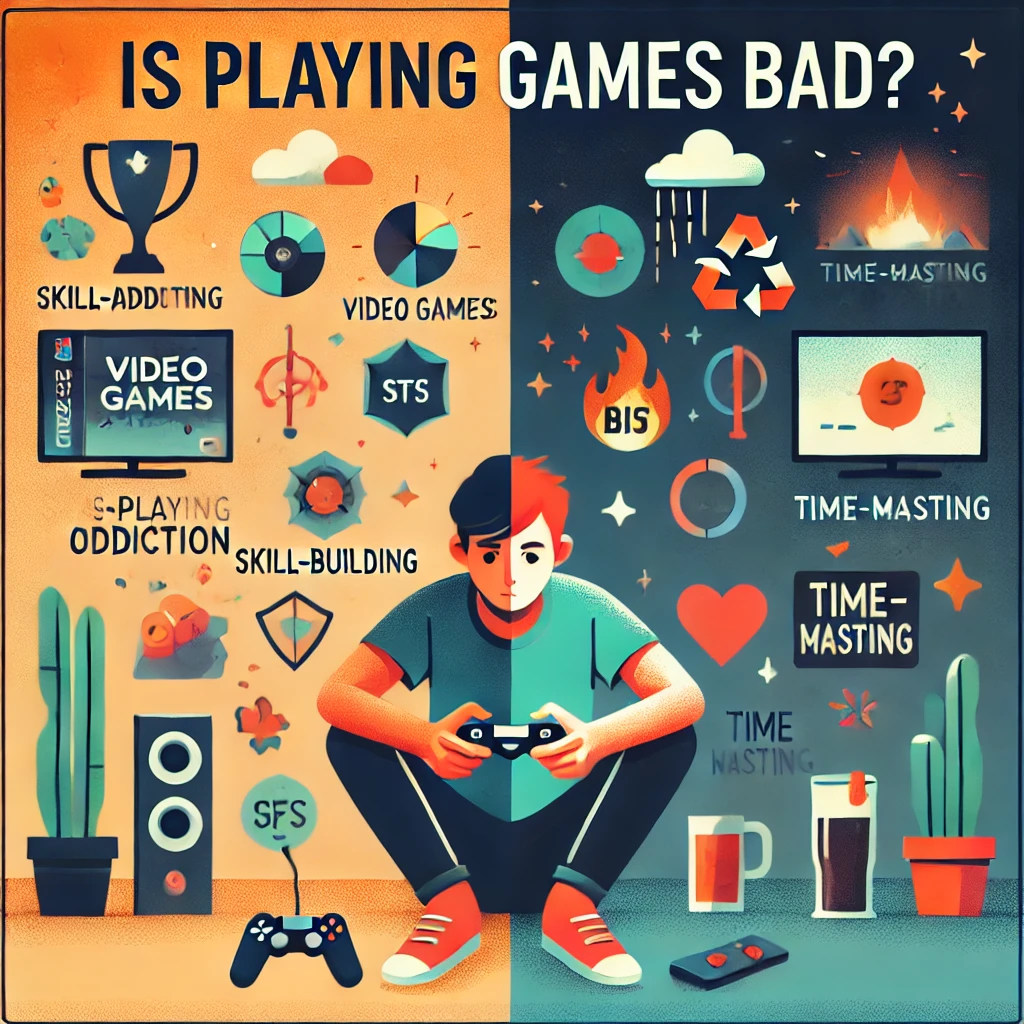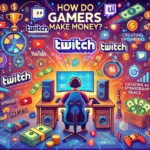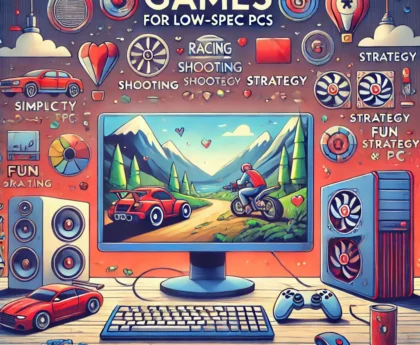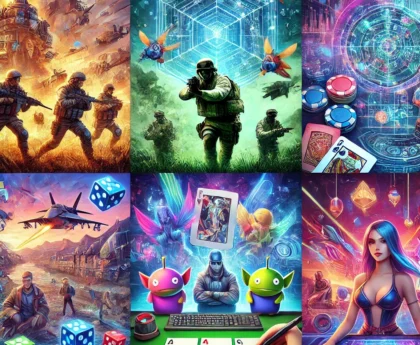Playing games is not inherently bad; it depends on the type of games played, the time spent, and the context in which they are played. Games can have positive and negative impacts on individuals, especially young gamers.
Positive Impacts of Playing Games
1. Skill Development:
• Enhances cognitive skills like problem-solving, decision-making, and spatial reasoning.
• Improves hand-eye coordination and reflexes.
2. Social Interaction:
• Multiplayer games foster collaboration and teamwork.
• Connects players globally.
3. Stress Relief:
• Provides an enjoyable way to relax and unwind.
4. Career Opportunities:
• Many gamers turn professional in eSports or content creation.
• Examples: Ninja, Shroud, Mortal (Indian gamer).
Negative Impacts of Playing Games
1. Addiction Risks:
• Excessive gaming can lead to addiction, negatively impacting health, academics, or career.
2. Physical Health Issues:
• Sedentary behavior can lead to obesity and related conditions.
3. Mental Health Concerns:
• Overexposure may lead to anxiety, depression, and reduced attention span.
4. Social Isolation:
• Can lead to reduced face-to-face interactions and loneliness.
Steps Governments Can Take to Help Gamers
1. Regulation of Gaming Time:
• Introduce age-based restrictions on gaming hours (e.g., China’s gaming curfew for minors).
2. Promotion of eSports:
• Recognize gaming as a sport to create structured opportunities.
3. Awareness Campaigns:
• Educate about the risks of gaming addiction and responsible gaming practices.
4. Parental Control Tools:
• Encourage gaming companies to provide robust parental control features.
5. Cybersecurity Measures:
• Ensure online gaming platforms are safe from fraud and cyber threats.
Steps Parents Can Take to Help Gamers
1. Set Limits:
• Restrict gaming to specific hours per day or week.
2. Monitor Content:
• Ensure games are age-appropriate and free of harmful content.
3. Encourage Balance:
• Promote a balance between gaming, studies, physical activities, and social interaction.
4. Engage in Gaming:
• Play with children occasionally to understand their interests and monitor behavior.
5. Foster Communication:
• Discuss the dangers of gaming addiction openly and encourage responsible habits.
Can We Make Money by Playing Games?
Yes, professional gaming has become a lucrative career for many. Examples include:
1. eSports Competitions:
• Players earn by participating in tournaments.
• Example: Dota 2’s The International offers millions in prize money.
2. Streaming:
• Gamers like Ninja and PewDiePie earn millions through Twitch, YouTube, and sponsorships.
• Example: Ninja’s Twitch Profile.
3. Content Creation:
• Gamers create tutorials, reviews, and entertainment videos.
4. Game Testing:
• Companies hire gamers to test and provide feedback on new games.
How to Stop Gaming Addiction
1. Set Realistic Goals:
• Gradually reduce gaming hours to a healthy limit.
2. Engage in Other Activities:
• Encourage hobbies, outdoor sports, or creative pursuits.
3. Professional Help:
• Seek counseling or therapy for severe addiction.
4. Parental Monitoring:
• Use parental control software to limit screen time.
5. Join Support Groups:
• Participate in groups or forums focused on overcoming addiction.
How Much Time Should Someone Play?
• Recommended Duration:
• Children: 1–2 hours per day.
• Adults: 2–3 hours per day (non-consecutive).
• Breaks:
• Take a 10-15 minute break for every hour of gaming to avoid strain.
Impacts of Playing Games
Positive Impacts
1. Cognitive Benefits:
• Enhanced problem-solving and multitasking abilities.
2. Stress Relief:
• Temporary escape from daily pressures.
3. Career Opportunities:
• Opens doors to eSports, streaming, and game development.
Negative Impacts
1. Physical Health Issues:
• Poor posture, eye strain, and lack of exercise.
2. Mental Health Problems:
• Addiction, anxiety, and reduced focus.
3. Social Issues:
• Can strain relationships if played excessively.
Gaming is not inherently harmful if practiced in moderation and balanced with other life aspects. Governments, parents, and gamers themselves must work together to harness the positive aspects of gaming while mitigating its risks.




